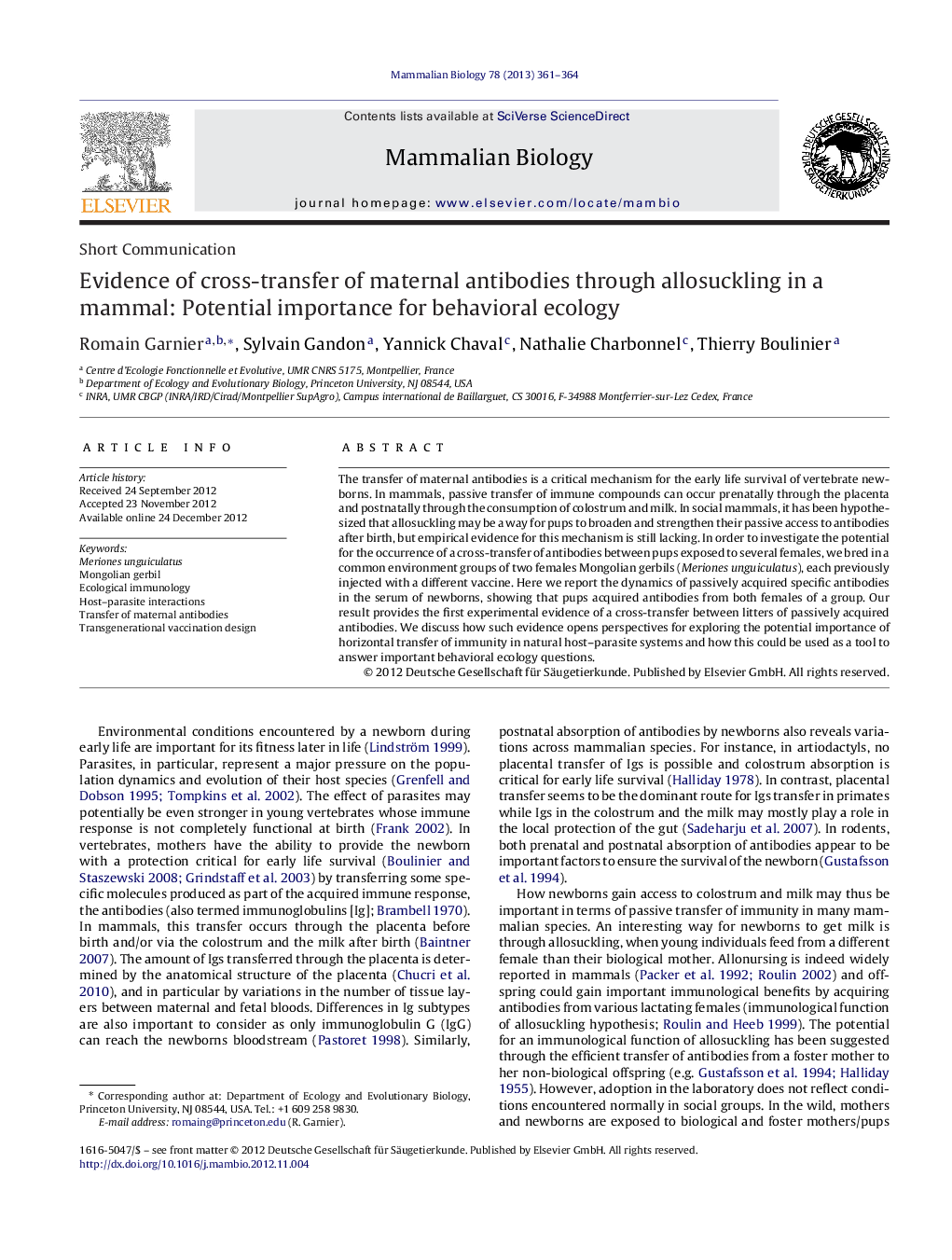| کد مقاله | کد نشریه | سال انتشار | مقاله انگلیسی | نسخه تمام متن |
|---|---|---|---|---|
| 2193730 | 1098394 | 2013 | 4 صفحه PDF | دانلود رایگان |

The transfer of maternal antibodies is a critical mechanism for the early life survival of vertebrate newborns. In mammals, passive transfer of immune compounds can occur prenatally through the placenta and postnatally through the consumption of colostrum and milk. In social mammals, it has been hypothesized that allosuckling may be a way for pups to broaden and strengthen their passive access to antibodies after birth, but empirical evidence for this mechanism is still lacking. In order to investigate the potential for the occurrence of a cross-transfer of antibodies between pups exposed to several females, we bred in a common environment groups of two females Mongolian gerbils (Meriones unguiculatus), each previously injected with a different vaccine. Here we report the dynamics of passively acquired specific antibodies in the serum of newborns, showing that pups acquired antibodies from both females of a group. Our result provides the first experimental evidence of a cross-transfer between litters of passively acquired antibodies. We discuss how such evidence opens perspectives for exploring the potential importance of horizontal transfer of immunity in natural host–parasite systems and how this could be used as a tool to answer important behavioral ecology questions.
Journal: Mammalian Biology - Zeitschrift für Säugetierkunde - Volume 78, Issue 5, September 2013, Pages 361–364